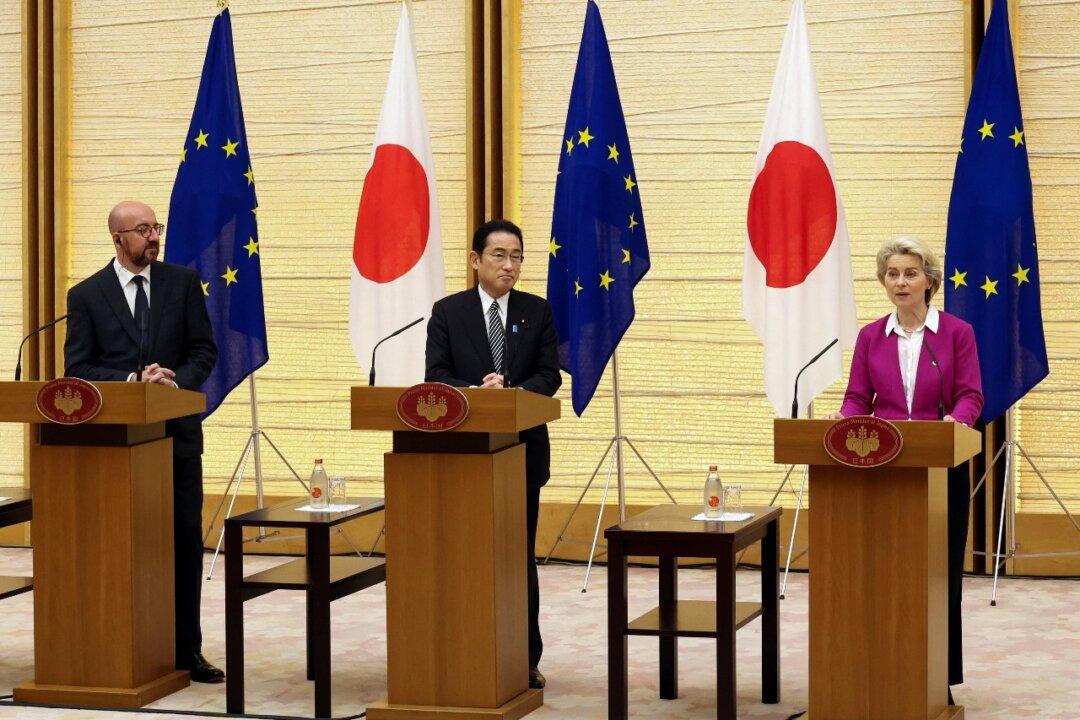Leaders from Japan and the EU announced a new digital partnership on May 12 following a summit in which they discussed how to jointly contend with rising authoritarianism amid Russia’s invasion of Ukraine, nuclear saber rattling from North Korea, and increased aggression from China’s communist regime.
Japanese Prime Minister Fumio Kishida met with European Council President Charles Michel and European Commission President Ursula von der Leyen at the 28th EU–Japan summit in Tokyo, where they reaffirmed their commitment to upholding democratic norms, the rules-based international order, and a free and open Indo-Pacific.




